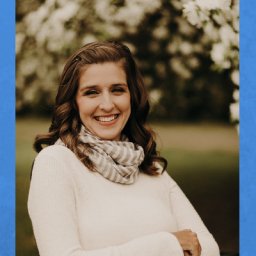Narcolepsy is a strange disorder. It’s strange because it centers on universal experiences: sleep and fatigue. Everyone knows what it feels like to be tired; everyone knows what it feels like to be sleepy. That said, there is a difference between narcolepsy and sleepiness, and it’s particularly important to recognize that fact when talking about an “invisible” disability like narcolepsy.
Many people lead entirely normal lives until they begin experiencing symptoms of narcolepsy. For me, it started in college. At first I just started sleeping more, feeling like I needed naps every single day. Then I started needing them twice or three times a day. Eventually, I started falling asleep involuntarily. I would fall asleep two or three times in a 60-minute lecture. I would get up in the middle of class and run laps around the building to wake myself up, only to sit down again and succumb to sleep almost immediately. I started to gain weight rapidly, and was sick all the time. I started to have intense, realistic night terrors that made me afraid to get into bed at night.
While all this was going on, I was a freshman in college and I assumed that this must just be a result of my failure to take care of myself, a consequence of staying out late at parties and reveling in my newfound freedom. So I tried to buckle down: I cut back on socializing, spent more hours in the library, tried to maintain a proper sleep schedule. But it only got worse as time went on – my grades started to slip, my relationships became strained and I fell into a deep and unrelenting depression. I felt like my whole world was falling apart because I could no longer trust my body, and by extension, myself.
I didn’t find out I had narcolepsy for a long time, so I had no word to use to try to explain these events to myself, or to others. I tried to describe how different this was from anything I had ever experienced before. I tried to prevail upon professors and administrators to hear how much I was struggling to understand what was happening. But for the most part, all anyone heard was how tired I was, and that was simply not excuse enough.
I sought out doctors at many different institutions and with many different specialties. They ran many tests that consistently came back normal; my symptoms were simply not enough to make any kind of definitive diagnosis. After receiving that message so many times, from so many people, it stopped being about my physical body. It started to be about me as a person. I was simply not enough.
I spent a long time feeling like I was coming up short, even after I was diagnosed. Even now, I sometimes ask myself: do I really need a nap or am I being selfish? Am I just lazy? Sometimes these questions get bigger and scarier: will I ever find someone who can love and accept me given my needs and circumstances? Will narcolepsy keep me from achieving my dreams?
But recently I also discovered that I’ve finally stopped blaming myself. It took hard work to come to terms with my disability and to incorporate it into my identity. I won't say that every day is easy, but I will say that having narcolepsy forced me to slow down, to look around and appreciate my strength, tenacity and conviction. It dared me to appreciate the joy of uninhibited laughter and the satisfaction of a hard-won achievement. Perhaps most of all, it taught me to embrace those who can embrace all of me, who don’t see my disability as a barrier, but as one part of who I am.
I didn’t get here alone. I wouldn’t be where I am today without the support of others: fellow PWN (People With Narcolepsy) who have inspired me and lit the path for me during one of the darkest moments of my life, my therapist who continues to help me find compassion for myself, my friends who have stuck with me even when I wasn’t much fun to be around, and my family who have been unfailing in their efforts to understand my disability and champion efforts to cure it. I wouldn’t be where I am today without you all.
I am different. Narcolepsy makes me different. My “tired” is distinct from yours, my “sleepy” is not the same. But in that difference, there should be power, not shame. I’m proud to finally be able to see that for myself.



